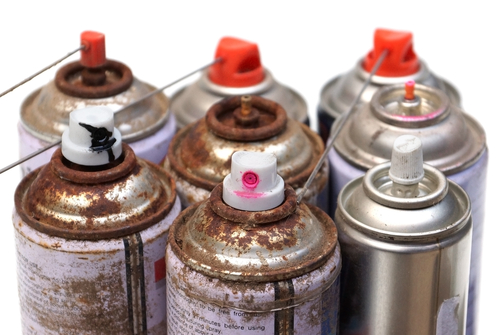August 6, 2024 - Benjamin Ehinger
Household Chemical Disposal: Safe Practices for Environmental Protection
CALL NOW 844-762-8449
Since you cannot handle household chemical disposal with a dumpster rental, due to dumpster rental restrictions, you need to know the proper disposal options. Managing the disposal of household chemicals is essential for maintaining a safe and healthy environment for you, your family, and your pets. Many common household products contain hazardous materials that cannot go into regular trash due to their potential harm to human health and the environment. Proper disposal methods are critical to prevent these hazardous substances from contaminating air, water, and soil.
You have several options for safe disposal of household chemicals. Los Angeles County offers free and convenient ways to dispose of hazardous waste through designated collection programs and drop-off locations. Check their Household Hazardous Waste and Electronic Waste Program for schedules and approved items. By utilizing these programs, you help reduce the risks associated with improper chemical disposal.
It’s also important to consider alternatives to disposal, such as reducing usage, reusing, or recycling chemicals when possible. Educating yourself on safe handling and storage practices can further minimize risks. Engaging in these responsible actions supports a healthier home and community.
Proper disposal of HHW is crucial. Many communities offer collection programs for HHW to prevent these dangerous materials from contaminating the environment.
Common household hazardous materials:
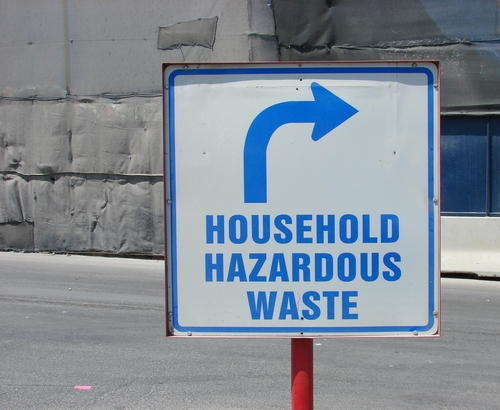 Improper disposal of household chemicals can lead to environmental pollution and pose risks to human health. Here, you’ll learn effective methods to safely dispose of common chemicals found in every household.
Improper disposal of household chemicals can lead to environmental pollution and pose risks to human health. Here, you’ll learn effective methods to safely dispose of common chemicals found in every household.
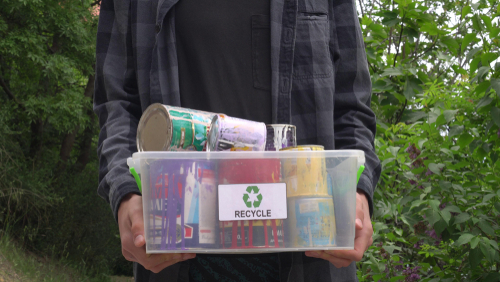 Managing household chemicals responsibly can significantly minimize environmental harm. Focusing on reduction, reuse, and recycling can help you make more environmentally friendly choices.
Managing household chemicals responsibly can significantly minimize environmental harm. Focusing on reduction, reuse, and recycling can help you make more environmentally friendly choices.
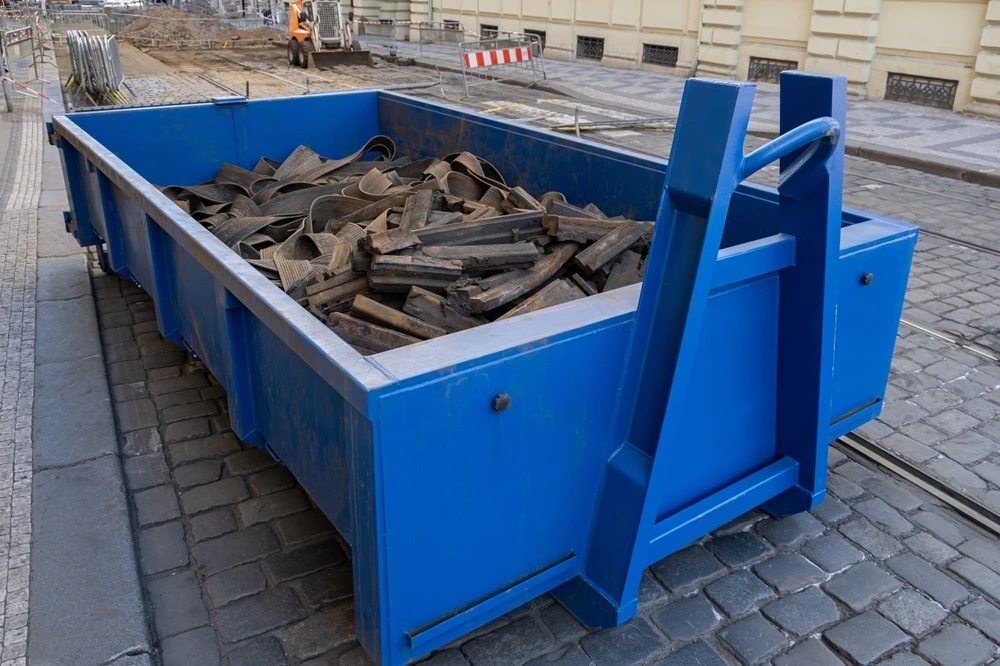 Waste Segregation on Construction Job Sites: Best Practices for Efficiency and Sustainability
Waste Segregation on Construction Job Sites: Best Practices for Efficiency and Sustainability
Date: September 06 ,2024
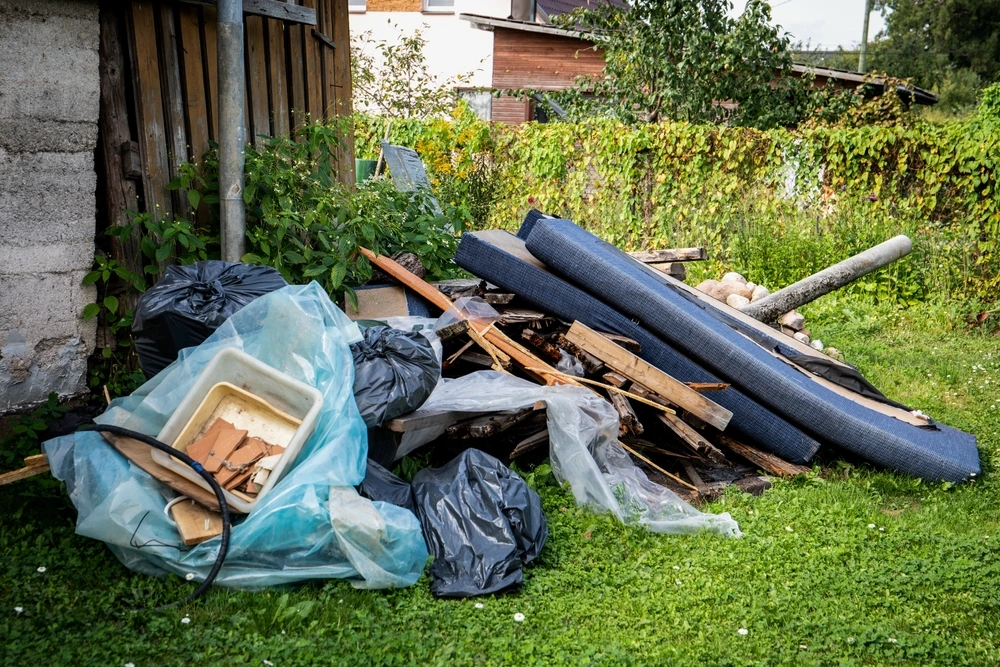 Junk Removal in Mount Pleasant SC: Efficient Services for a Cleaner Community
Junk Removal in Mount Pleasant SC: Efficient Services for a Cleaner Community
Date: September 06 ,2024
Key Takeaways
- Safe disposal of household chemicals is essential for health and environment.
- Local collection programs offer free disposal services.
- Reducing, reusing, and recycling are effective disposal alternatives.
Understanding Household Hazardous Waste
Household hazardous waste (HHW) refers to the disposal of any unwanted materials from your home that exhibit hazardous properties. These materials can be toxic, corrosive, flammable, or reactive. Examples of HHW include:- Pesticides: These chemicals are often toxic and need careful handling.
- Oil-based paints: Known for being flammable and sometimes toxic.
- Batteries: Especially rechargeable ones, which contain corrosive substances.
- Thermometers: Old mercury thermometers are particularly hazardous.
- Electronics: Various components can be reactive or contain harmful substances.
| Property | Description |
|---|---|
| Toxic | Can cause harm to living organisms. |
| Corrosive | Can corrode metals or skin. |
| Flammable | Easily ignited and capable of burning rapidly. |
| Reactive | Can cause explosions or release toxic fumes when mixed with other substances. |
- Bleach: A common corrosive substance found in many homes.
- Weed killers: Often toxic and occasionally reactive.
- Fluorescent lamp bulbs: Contain mercury, posing a toxic risk.
Safe Storage and Handling of Household Chemicals
Proper storage and handling of household chemicals are vital to maintaining a safe home environment. By following specific guidelines, you can effectively minimize risks to children, pets, and anyone handling these substances.Storage Best Practices
Store household chemicals in their original containers to prevent any mix-ups or chemical reactions. Labeling each container clearly ensures you know exactly what it contains and how to handle it. Segregate incompatible substances to avoid reactions that could lead to fires or harmful gases. Place chemicals in well-ventilated areas, away from direct sunlight and heat sources. Keep household chemicals out of reach of children and pets, ideally in locked cabinets. Check for leaks regularly and replace damaged containers immediately to prevent spills and contamination. For flammable chemicals, store them away from living areas and ignition sources such as stoves or heaters.Safe Handling Techniques
Always follow the instructions provided on product labels when using household chemicals. Wear appropriate protective gear, such as gloves and safety goggles, to minimize exposure. Never mix different chemicals, as this could produce dangerous reactions. Handle chemicals in well-ventilated areas to reduce inhalation risks. Transfer chemicals to smaller containers only if necessary, ensuring they are properly labeled. In case of spills, clean immediately using recommended procedures, and dispose of materials properly. Wash your hands thoroughly after handling chemicals, and store them safely after each use. Taking these precautions helps prevent accidents and maintains a safe environment for everyone in your home.Disposal Methods for Common Household Chemicals
 Improper disposal of household chemicals can lead to environmental pollution and pose risks to human health. Here, you’ll learn effective methods to safely dispose of common chemicals found in every household.
Improper disposal of household chemicals can lead to environmental pollution and pose risks to human health. Here, you’ll learn effective methods to safely dispose of common chemicals found in every household.
Paint and Solvents
- Latex Paint: Let it dry out completely by leaving the lid off, or mix with cat litter. Once dry, it can go in the regular trash.
- Oil-Based Paint & Solvents: These are considered hazardous waste. Use local household hazardous waste collection programs to dispose of them safely.
- Empty Cans: If the cans are completely empty and dry, you can dispose of them with your regular recycling.
- Batteries and Electronics
- Automotive Batteries: Many auto parts stores accept used car batteries for recycling. Never throw these in the trash.
- Household Batteries (Alkaline): Dispose of these in the regular trash, but check local regulations as some areas offer recycling programs.
- Rechargeable Batteries: Take these to a household hazardous waste collection site or drop-off locations at retail stores.
- Electronics: Donate working devices to charity or use programs like Best Buy’s recycling take-back scheme.
Pesticides and Garden Chemicals
- Unwanted or Leftover Pesticides: Bring these to a local household hazardous waste facility. Never dispose of them down the drain or in regular trash.
- Empty Containers: Follow the specific disposal instructions on the label. Generally, triple-rinse the container, and then dispose of it according to local guidelines.
- Integrated Pest Management (IPM): Consider adopting IPM practices to reduce the need for chemical pesticides, thereby minimizing disposal issues.
Cleaning Products and Other Chemicals
- Household Cleaners: Avoid mixing different chemicals when disposing of them; it can be dangerous. Bring them to a hazardous waste collection site if they contain harmful ingredients.
- Expired Medicines: Do not flush these. Pharmacies often have take-back programs, or use drug disposal kiosks.
- Miscellaneous Chemicals: For items like pool chemicals or automotive fluids, use community hazardous waste programs. Check local collection events for proper disposal.
Hazardous Waste Recycling and Drop-off Locations
Proper disposal of household hazardous waste (HHW) is crucial to protect human health and the environment. Common methods to manage these materials include permanent collection sites, special HHW collection events, and retailer take-back programs.Permanent Collection Sites
Permanent collection sites provide a consistent and reliable option for disposing of HHW. Facilities like the one in Pinellas County are open on select days and accept materials such as chemicals, paints, and electronics. These sites generally operate year-round, making them a convenient disposal option. You can usually find these locations managed by local government or environmental agencies. Some popular items accepted include batteries, motor oil, and pesticides. It’s important to check the specific operating hours and types of materials accepted by your local facility.HHW Collection Events
HHW collection events are organized periodically to collect hazardous waste from households. For example, Philadelphia hosts seasonal collection events, providing a temporary solution for those unable to utilize permanent sites. These events typically occur on weekends and are well-publicized within the community. These collection events accept a wide range of hazardous materials including flammable liquids, corrosive substances, and toxic chemicals. They serve as an accessible option for residents looking to dispose of HHW responsibly.Retailer Take-back Programs
Retailer take-back programs offer another avenue for recycling hazardous materials. Some companies provide services to pick up hazardous items directly from your doorstep. This service may include special pickups for electronics, batteries, and certain chemicals. Retailers also participate in programs like Call2Recycle, allowing customers to drop off items such as rechargeable batteries for free recycling. It’s advisable to call ahead to confirm what materials are accepted and any associated fees with these retailer programs.Alternatives to Disposal: Reduce, Reuse, Recycle
 Managing household chemicals responsibly can significantly minimize environmental harm. Focusing on reduction, reuse, and recycling can help you make more environmentally friendly choices.
Managing household chemicals responsibly can significantly minimize environmental harm. Focusing on reduction, reuse, and recycling can help you make more environmentally friendly choices.
Prevention and Reduction Strategies
One of the most effective ways to handle household chemicals is by preventing waste. Purchase only the quantity needed to avoid surpluses. Choose natural products and environmentally friendly alternatives when possible. For example, choose non-toxic cleaning supplies that have minimal environmental impact. Avoid buying in bulk for items that are not frequently used. This reduces the likelihood of leftover hazardous materials. Careful planning can also help avoid unnecessary purchases, which cuts down on waste and overall environmental footprint.Reusing and Repurposing Household Chemicals
Reusing household chemicals before disposal can be another practical approach. For instance, you can reuse solvents with paint thinners. Close the container, let the paint settle, then pour out the clear liquid for future use. This approach reduces the need to buy new products and minimizes waste. Consider repurposing items like used containers or donating them through local recycling programs. Donate unused chemical products to community organizations, schools, or local theaters that might still find them useful for specific projects.Recycling and Recovery Opportunities
Recycling is another crucial step in handling household chemicals. Many products, like batteries and certain types of oils, require special handling when recycled. Check your local recycling center guidelines to see what specific materials they accept and any required preparation steps. Engaging in recycling programs helps recover valuable resources from waste. Participating in your community’s household hazardous waste disposal events ensures that items are processed safely, reducing potential harm to both the environment and human health. By embracing these alternatives, you’re contributing to a more sustainable future.Regulations and Compliance
Disposing of household chemicals requires adherence to specific regulations to ensure safety and environmental protection. The Resource Conservation and Recovery Act (RCRA) is a key piece of legislation that governs hazardous waste management in the United States. Under RCRA, the EPA has developed regulations that outline how hazardous waste should be treated, stored, and disposed of. Certain household wastes are excluded from these regulations when generated by normal household activities. To comply with these regulations, you should follow disposal guidelines provided by local and federal agencies. The EPA provides clear instructions on what is considered hazardous waste and how to properly dispose of it.Common Examples of Household Hazardous Waste
- Paints (oil-based)
- Pesticides/Herbicides
- Used oil or fuel
- Batteries
- Solvents
Key Compliance Steps
- Identify: Determine if the waste is classified as hazardous.
- Separate: Keep hazardous waste separate from regular trash.
- Store Safely: Use proper containers to avoid leaks and contamination.
- Transport: Follow Department of Transportation guidelines for transporting hazardous materials.
Health and Environmental Impact of Improper Disposal
Improper disposal of household chemicals can contaminate soil, water, and air. Pouring chemicals down the drain, on the ground, or into storm sewers introduces toxic substances into the environment. Improper disposal in landfills contributes to leachate, which is a potentially dangerous liquid that can migrate into groundwater. Leachate contains harmful chemicals that can affect human health and contaminate drinking water sources. Direct exposure to improperly disposed chemicals poses serious risks to human health. Common acute health effects include eye and skin irritation, difficulty breathing, and nausea due to chemical exposure. Additionally, some chemicals may cause chemical burns or headaches. Improper disposal can also affect wildlife and natural products in the environment. Toxic substances can disrupt ecosystems, killing plants and animals, and affecting the food chain. For more information about the dangers of improper disposal, you can refer to the U.S. EPA site and the OSHA report. It’s crucial to follow safe disposal guidelines for hazardous waste to protect both your health and the environment.Frequently Asked Questions
Disposing of household chemicals requires knowing where to take them, understanding disposal guidelines, and utilizing available services. Proper management prevents harm to humans, animals, and the environment.How can I find a nearby household chemical disposal facility?
To locate a nearby disposal facility, you can search for “household hazardous waste” in the Earth 911 database. Contact your local environmental, health, or solid waste agency for information about permanent or periodic collections in your area.What are the guidelines for disposing of household hazardous waste?
The Environmental Protection Agency (EPA) defines household hazardous waste (HHW) as products that can catch fire, react, or explode under certain circumstances, or that are corrosive or toxic. These should not be thrown in the trash or recycling bins. Always follow local guidelines for specific disposal instructions.Are there any free hazardous waste disposal services available?
Some communities offer free hazardous waste disposal services through periodic collection events. Check with your local solid waste agency or Peoria County Recycling Department for information on how to schedule an appointment for disposal.What should I do with expired or unused household chemicals?
Expired or unused household chemicals should never be disposed of in regular trash. Products like oil-based paint can be taken to a local paint collection facility, while latex paint can be dried and then safely discarded. For other chemicals, seek guidance from your local disposal facility.How do household chemical disposal companies manage waste?
Household chemical disposal companies handle waste by ensuring it is safely collected, transported, and processed. They use hazardous waste manifests to track the disposal process, making certain that waste reaches the appropriate treatment, storage, or disposal facility.Can I dispose of hazardous waste at a local recycling center?
Not all recycling centers accept hazardous waste. While some centers may take specific items like batteries or used oil, it is crucial to verify with your local facility first. For comprehensive hazardous waste disposal, use designated facilities or contact your local regulatory agency for guidance.RECENT BLOGS
 Waste Segregation on Construction Job Sites: Best Practices for Efficiency and Sustainability
Waste Segregation on Construction Job Sites: Best Practices for Efficiency and Sustainability
Date: September 06 ,2024
 Junk Removal in Mount Pleasant SC: Efficient Services for a Cleaner Community
Junk Removal in Mount Pleasant SC: Efficient Services for a Cleaner Community
Date: September 06 ,2024
Our Reviews
Brian Healy
1725553543
Heather was so very pleasant, informative and charming. Next time… I will use you again.
Brandi Childers
1724853716
Ricardo helped me with my reservation. He made everything super clear and answered all my questions to help me pick the right dumpster to rent!
Steven Hewett
1724785537
Heather made the sales and scheduling experience extremely easy. Thank you for having great employees that care about conducting great business.
Jackson Vandiver
1724703158
Great service and fantastic customer service department. I would use them again.
kristin hester
1723492493
Vanessa was amazing!
LATEST BLOGS

